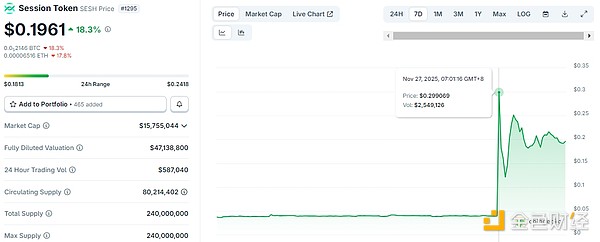‘Bitcoin Jesus’ Roger Ver Fights Tax Case, Claims Violation of Constitutional Rights
Ver's lawyers argued the IRS’ exit tax is unconstitutional and vague, accusing prosecutors of misconduct and ignoring exculpatory evidence.

Lawyers for “Bitcoin Jesus” Roger Ver on Tuesday urged a US judge to dismiss his tax evasion indictment . This was his first court filing since being arrested in Spain in April.
Earlier this year, US prosecutors charged Ver with major tax offenses . They claimed he avoided paying over $48m in taxes after selling crypto worth $240m. The case stems from Ver renouncing his US citizenship in 2014 and allegedly failing to file the required “exit tax” return.
This tax aims to ensure individuals fulfill any outstanding obligations before leaving the US tax system.
Ver’s legal issues deepened after his arrest in Spain, where he remains as a judge reviews his extradition to the US. He earned the nickname “Bitcoin Jesus” for his early role in promoting Bitcoin and his strong advocacy for the cryptocurrency.
Roger Ver’s Defense Calls Exit Tax Vague, Claims IRS Loss Allegations Lack Merit
On Tuesday, Ver’s lawyers argued in Los Angeles federal court that the IRS’s exit tax for US expatriates with assets exceeding $2m is unconstitutional and vague. They also accused prosecutors of improperly questioning one of Ver’s lawyers and ignoring documents showing Ver had no intent to break the law.
“The only potential government interest is raising revenue, and there are innumerable less restrictive means through which revenue can be raised,” they said.
Prosecutors have alleged that Ver caused the IRS a loss of at least $48m.
Prosecutors Claim Ver Hid Bitcoin Data on Exit Tax Return
They claim he intentionally concealed the true amount of Bitcoin he owned personally and through his California-based companies, MemoryDealers and Agilestar.
According to the indictment, Ver’s companies held about 70,000 Bitcoin by June 2017. In Nov. 2017, he allegedly took control of these and sold tens of thousands, earning around $240m.
Further, Ver allegedly worked with a firm and appraisers for his exit tax obligations but provided inaccurate data about his Bitcoin holdings. As a result, his 2017 exit tax return omitted his personal Bitcoin ownership and undervalued his companies.
But, Ver’s legal team argued that prosecutors ignored evidence showing he had no intent to violate US tax laws.
If convicted on all charges, Ver could face significant prison time. He may receive up to 20 years for each mail fraud count. For each tax evasion count, he could face up to five years. Additionally, he may get up to three years for each false tax return count.
Disclaimer: The content of this article solely reflects the author's opinion and does not represent the platform in any capacity. This article is not intended to serve as a reference for making investment decisions.
You may also like
Bitcoin security reaches a historic high, but miner revenue drops to a historic low. Where will mining companies find new sources of income?
The current paradox of the Bitcoin network is particularly striking: while the protocol layer has never been more secure due to high hash power, the underlying mining industry is facing pressure from capital liquidation and consolidation.

What are the privacy messaging apps Session and SimpleX donated by Vitalik?
Why did Vitalik take action? From content encryption to metadata privacy.

The covert war escalates: Hyperliquid faces a "kamikaze" attack, but the real battle may have just begun
The attacker incurred a loss of 3 million in a "suicidal" attack, but may have achieved breakeven through external hedging. This appears more like a low-cost "stress test" targeting the protocol's defensive capabilities.


